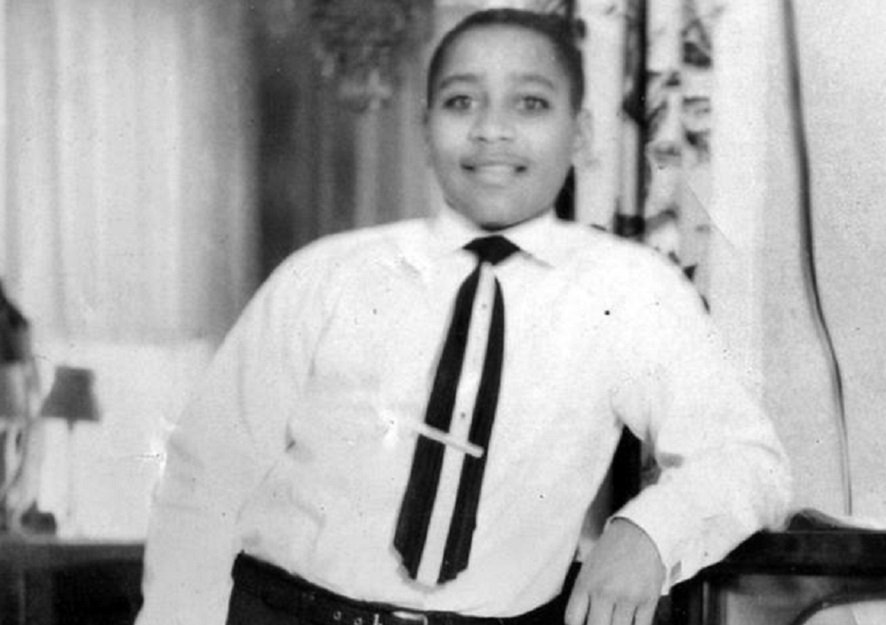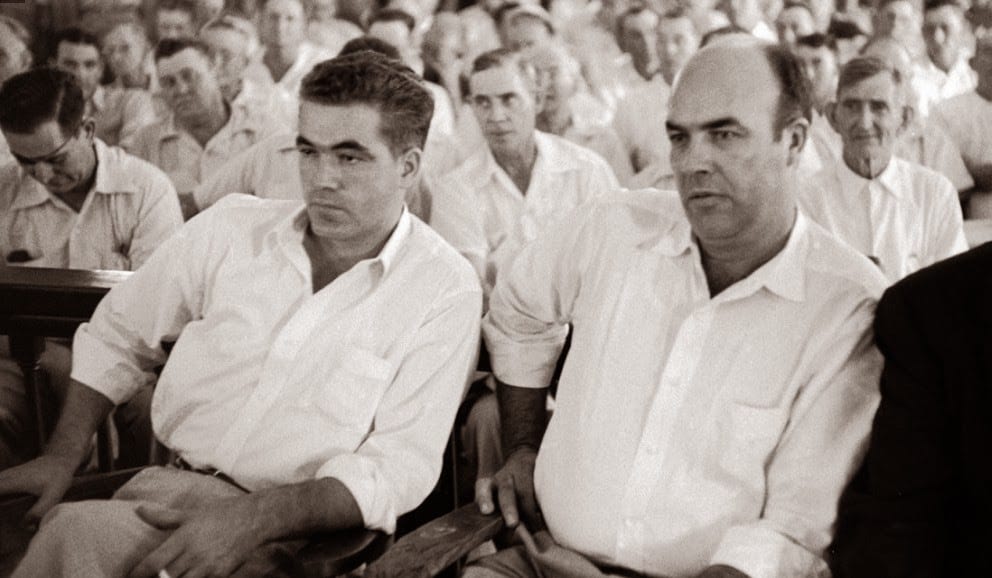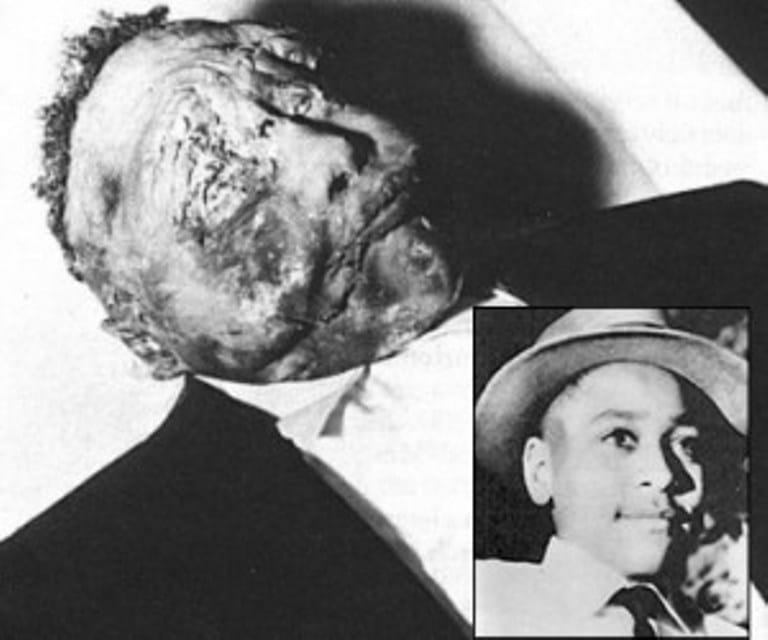The lynching murder of 14-year-old Emmett Till (pictured) is one of the most heinous crimes ever committed, highlighting the cruel injustice suffered by Black Americans at the hands of racist Whites. Till was killed on this day in 1955, all due to a rumor that he flirted with a White woman. The senseless killing set the growing Civil Rights Movement into motion and a rallying cry was heard nationwide.
American history has provided an ongoing narrative of racism and xenophobia enacted by Whites against young Black people. As recently witnessed in the cases of Michael “Mike” Brown, Ezell Ford, Ramarley Graham, Jordan Davis, and Trayvon Martin, a treacherous and misguided brand of justice placed upon young Black men has been going on for centuries.
And yet the details of Till’s death nearly 60 years ago are just as chilling today, marking a curious parallel to current times.
Till, born on July 25, 1941, in Chicago, Ill., was visiting family in Money, Miss. On August 24, 1955, it was rumored that he flirted with a White cashier at a local store, which was a huge offence at the time. This speculation led to two White men kidnapping Till, later beating him, and shooting him dead.
Raised by his single mother, Mamie Till (pictured above), young Emmett lived generally well in Chicago’s South Side neighborhood. Accounts from friends and family noted that Till was much like any other young boy, full of jokes, hopes, and promise.
The events that would carry him to Mississippi started when a great uncle from the state visited Chicago. The uncle promised to take Till’s cousin back to Money, and Emmett begged his mother to tag along.
Just days after arriving in Money, Till and a group of boys visited the Bryant’s Grocery and Meat Market to buy snacks after picking cotton earlier that day. Accounts vary, but Till allegedly wolf-whistled or asked Carolyn Bryant, the clerk and wife of store owner Roy Bryant, on a date.
The boys that Till was with also said this occurred as well, but Till’s cousin, Simeon Wright, offered a different view and said no such thing occurred.
Mrs. Bryant pulled out a pistol while Till and the boys were in the store, and the group ran off before any violence occurred. After Mr. Bryant was told about the incident, he scoured the town looking for Till who was staying with his uncle Moses Wright.
In the middle of the night, Bryant and his friend, John William Milam, kidnapped Till from his uncle’s home. The pair were reportedly driven to the Wright home by a Black man, and they took Till to a hidden location and savagely beat him.
The details surrounding Bryant and Milam have changed several times but what is known is that they shot Till after beating him and threw him into the Tallahatchie River.
Till’s disfigured body was discovered by some boys fishing three days after he was kidnapped. The body was identified by his uncle, and his mother demanded the body be sent to Chicago. Newspapers across the nation covered the story, and Black organizations, such as the National Association for the Advancement of Colored People (NAACP) were angered at the findings.
Chicago’s Mayor Richard Daley and Mississippi Governor Hugh White were among several White politicians and officials that condemned the murder. Bryant and Milam were charged with the murder, and an explosive trial happened in the town of Sumner in Mississippi.
An all-White, all-male jury heard the case, and across America, outrage and protests calling for justice in Till’s favor were heard. Moses Wright testified at the trial, risking his life by identifying Bryant and Milam as Till’s killers — such action at the time was warned against due to fear and intimidation in the South.
As expected, the jury acquitted the murderers of all charges, which led to more anger from civil rights groups and their supporters.
Adding insult to injury, Bryant and Milam admitted to the murders in January the next year and sold the rights of the interview to a magazine for $4,000.
Later accounts read that both men used their newfound wealth to buy a cotton farm, but that Blacks refused to work for them. The crime they committed followed them and the pair lived out a miserable existence.
Ironically, both men died of cancer: Milam died of spinal cancer in 1980, while Bryant died from cancer in 1994. Both men hid from public view fearing vengeance but never apologized for their crimes.
Till’s mother’s decision to leave the casket open at her son’s funeral left the world with the jarring image of her son’s body, which was hardly recognizable; Ms. Till wanted the world to see the vicious attack that happened to her son.
Later, Ms. Till would say that she realized her son’s death helped the Civil Rights Movement rise to prominence. Rosa Parks, Dr. Martin Luther King Jr., and several other powerful Black figures would reference Till’s savage murder.














